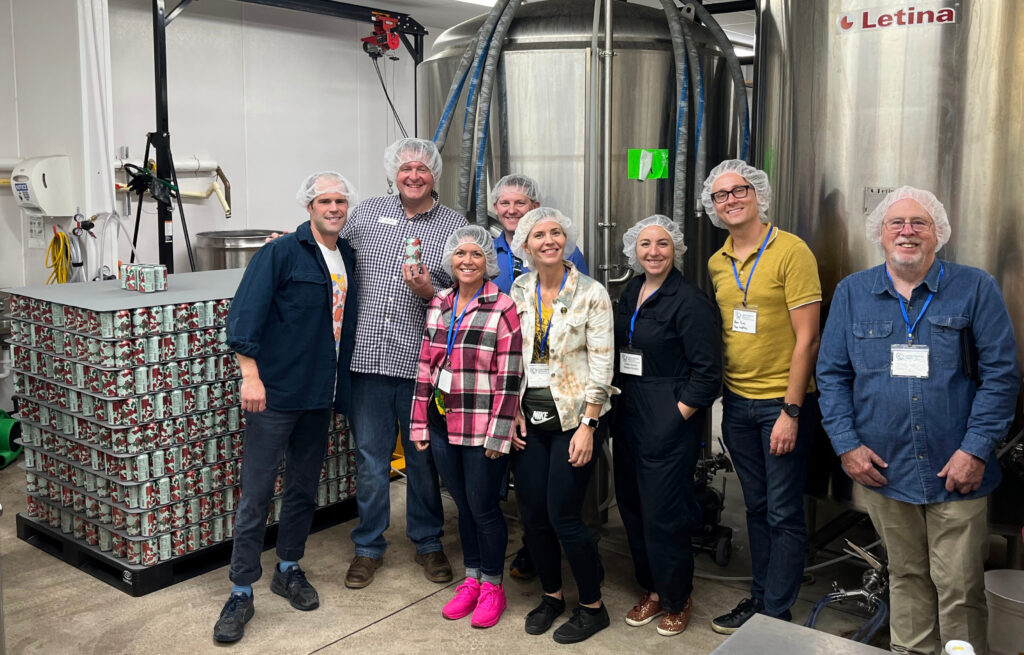When Henry Aschauer and the Forage Kitchen team started brewing kombucha in the basement of their Madison, WI restaurant, it wasn’t part of a grand beverage strategy. It was a side project born out of curiosity, creativity, and the belief that kombucha could taste better and cost less.
Today, Forage Kombucha is on shelves in over 800 retail stores across 17 states. But getting there took more than great tea and clever flavors. It required smart systems, bold pivots, and the kind of strategic support that came through the Food Finance Institute’s Fellows Program.
A Restaurant-Born Brand
Forage Kitchen, established in 2015, began as a healthy fast-casual restaurant concept. The in-house creation of kombucha was initially driven by a desire to offer healthy beverage options. This unique starting point provided an invaluable advantage: an immediate, real-time testing ground. “We could just see what sold,” Henry explained, allowing them to test flavors quickly and cost-effectively, far cheaper than typical consumer packaged goods companies. This direct customer feedback led them to discover the popularity of flavor-forward tea blends like their raspberry green tea, steering their product development.
Direct customer feedback led them to discover the popularity of flavor-forward tea blends, steering their product development.
Scaling Production and Distribution
As demand grew, Forage faced significant challenges moving beyond the restaurant basement. Scaling required a new production model, but finding a co-packer for a “live product” like kombucha, especially for a brand their size, proved nearly impossible. Additionally, expanding distribution beyond local Madison stores into regional and national markets presented its own complex logistical and sales hurdles.

Forage made the bold decision to create their own production facility in Fitchburg in October 2018. This allowed them to maintain quality control and manage their own schedule. They invested in a semi-automatic canning line and strategically partnered with patient distributors like CPW (Co-op Partners Warehouse), who provided crucial support during their early expansion.
Adaptability and Strategic Support
Forage Kombucha’s journey illustrates the important role of adaptability and leveraging strategic support in scaling a food business.
The FFI Fellows Program provided a crucial framework for navigating these strategic decisions. According to Henry, the program helped them build their food business network and expand their general food business knowledge: “Going through FFI Fellows allowed us to gain some industry knowledge and communicate with different experts in the industry.” Hear Henry tell more of their story in the video on our Fellows Program page.
The program also guided them in thinking about the capital needed for different stages of growth for a retail food business. “It gave us a framework we didn’t have before,” Henry said, highlighting how this external guidance helped them plan for and overcome the challenges that come with rapid growth.
Accomplishments with Fellows Program:
- Expanded network
- Food business fundamentals
- Clarified capital needs
- Retail distribution
Sustainable, Controlled Growth
The move to their new facility enabled larger batch sizes, leading to significantly improved cost of goods sold. This increased capacity positioned them for growth, even through the challenges of the COVID-19 pandemic. While early distribution was local, they gradually expanded, with key partners like CPW and Lipari Foods helping them reach new states.
Forage Kombucha’s story is a great example of how starting small and learning fast, with the right support, can lead to sustainable growth. Their roots in a restaurant gives them a unique connection to customers, setting them apart in a crowded market. Today, they’re proving that thoughtful growth and smart partnerships pay off.

